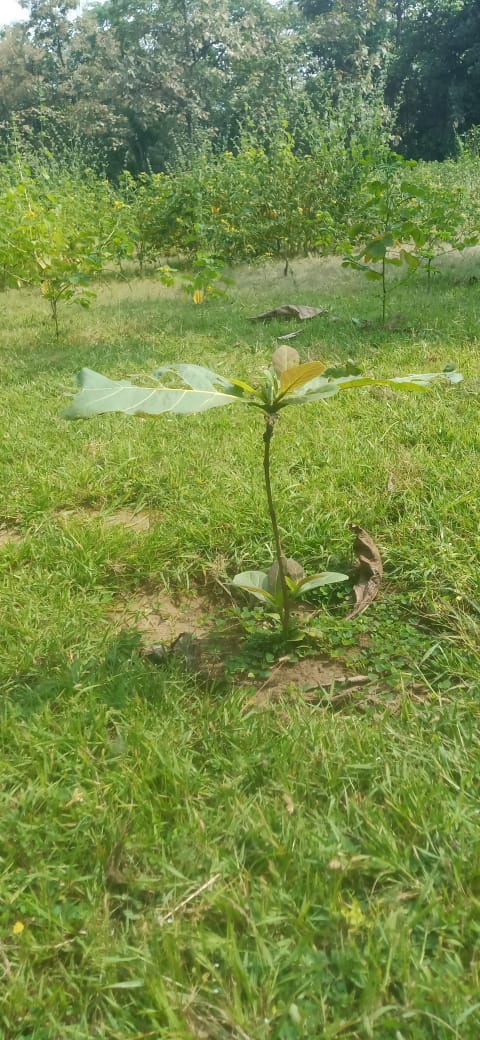
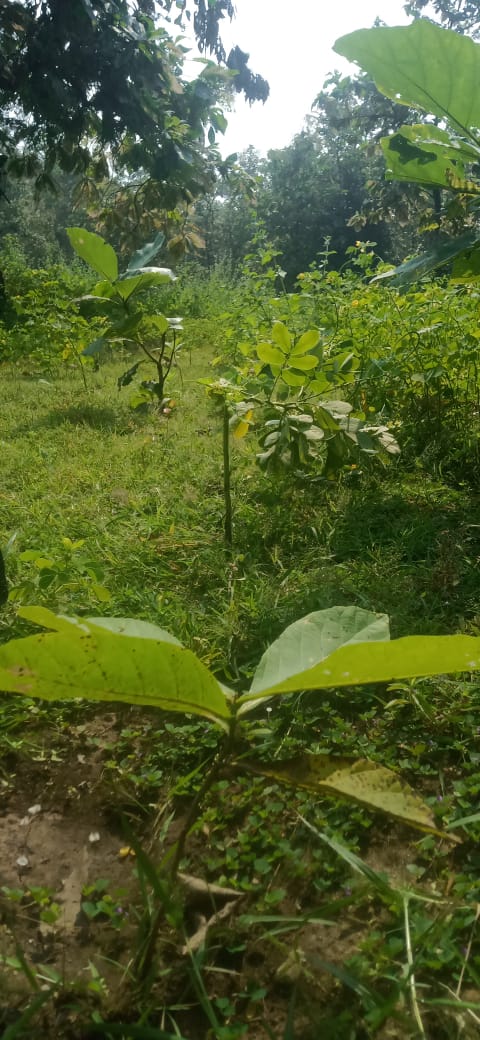
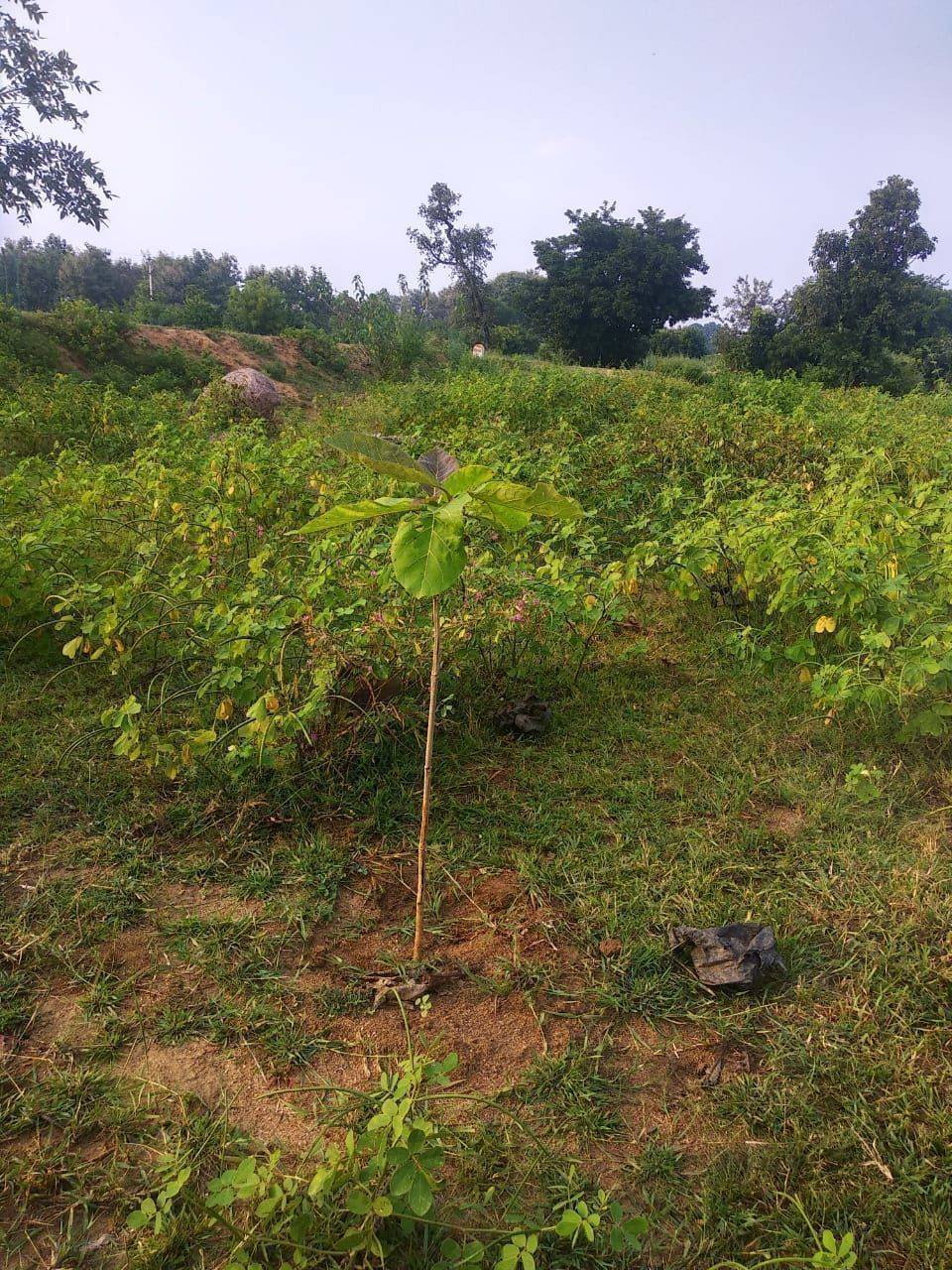
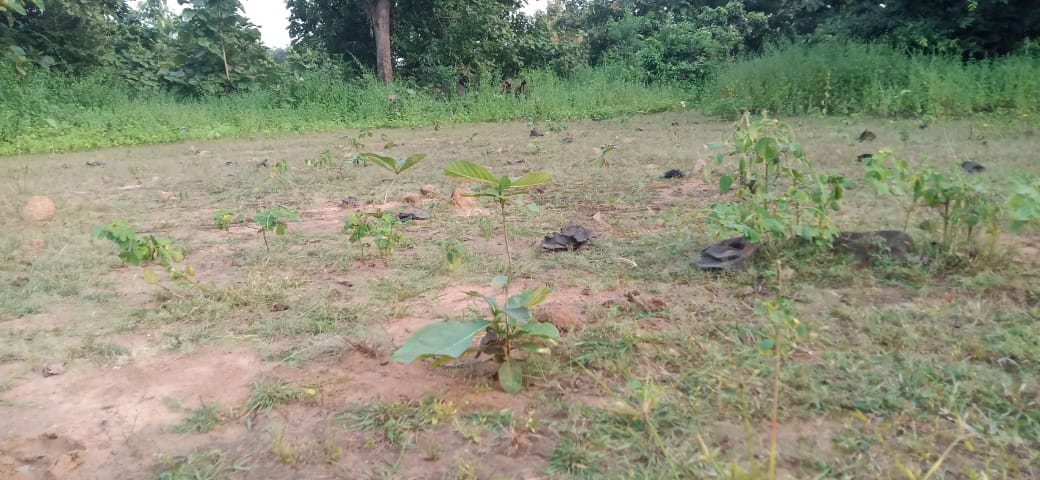
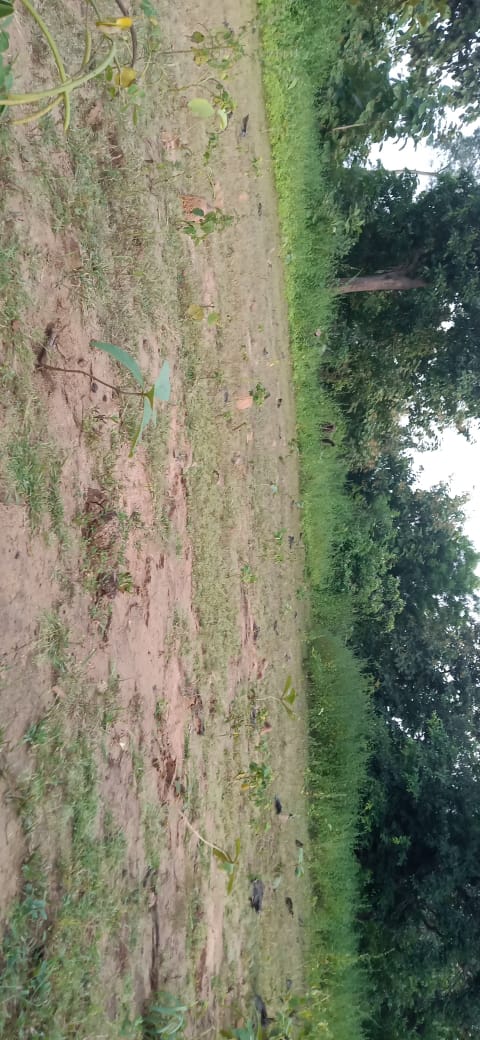
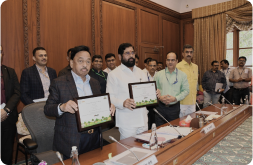
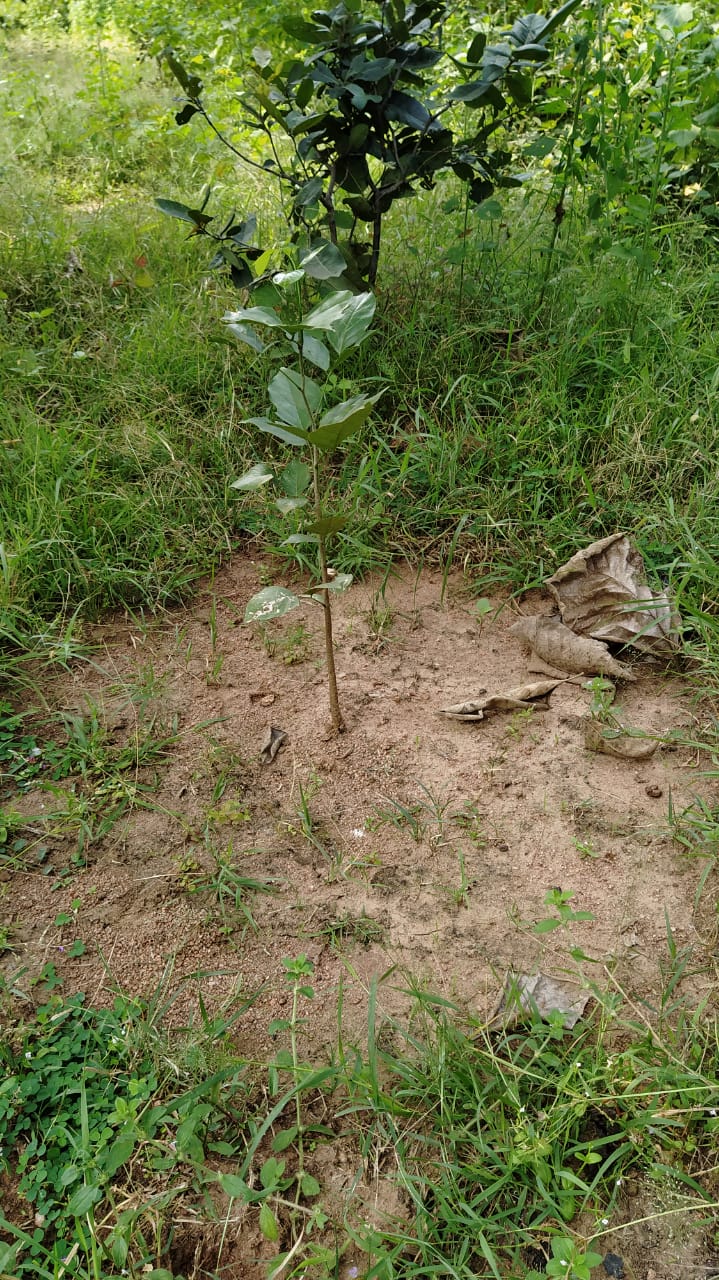

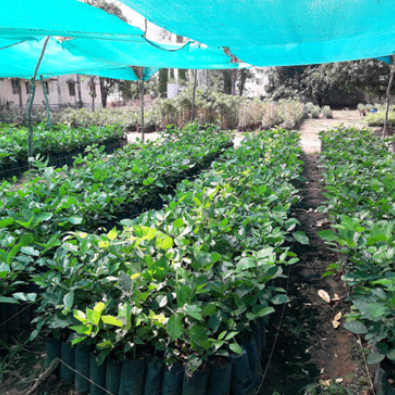
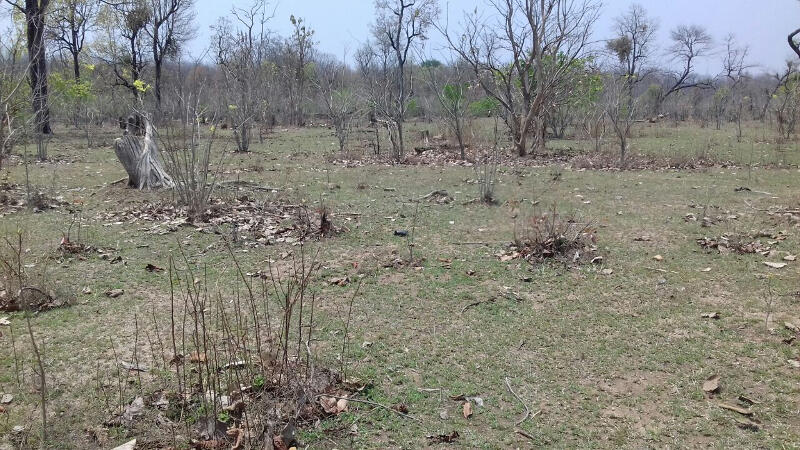
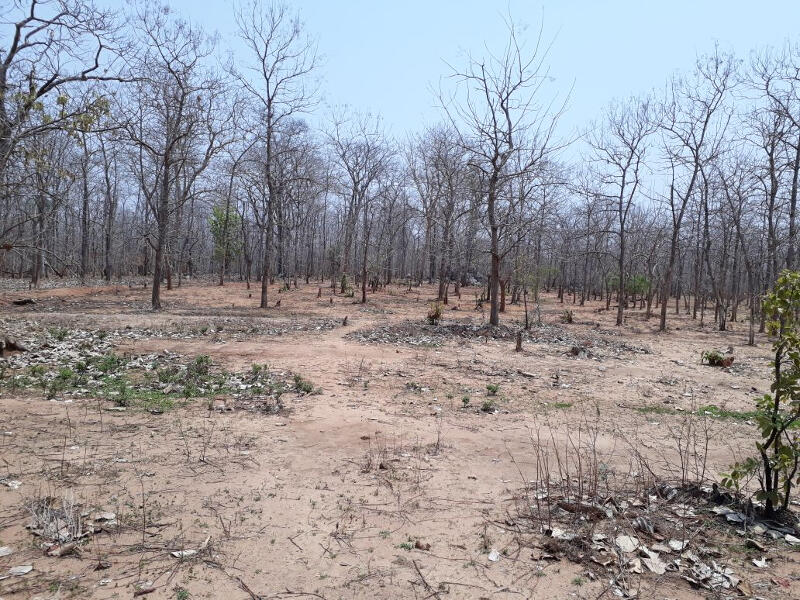
Project Target
0% Remaining
25,000
Trees Planted out of 25,000 Trees

Project Location:
Plantation of 25,000 native saplings in community land at the periphery of villages of Dongachintha, Ramnagar, Kannapur, Mathadipuda, Umapathikunta, Jhendaguda, Mothiramguda, and Luxettipet of Kawal Tiger Reserve covering Utnoor block of Adilabad district in the state of Telangana, India.
Project Aim
According to the Government of Telangana Tribal Welfare Department, the state has a very high concentration of tribal people like Gonds(2,97,846), Lambadas(20,46,117), Yerukala(1,44,128), Koyas(4,86,391), and Pradans(24,776) as of 2011 Census who are the indigenous community and are traditionally dependent on forests. The Food and Agricultural Organisation mentions the importance of Non-Timber Forest Produce in alleviating the poverty of forest-dependent communities.
Swathi Vadlamudi, in the March 11, 2018 issue of the Hindu, writes that the number of forest fires in the state are on the rise and to prevent the plantation of more trees to maintain young forests are advisable to reduce the number of flammable materials. The extreme condition of flood and drought have also increased in the state, which also needs to be checked. Some of the state’s worst cases of drought and water crises and crop failures are due to a lack of tree cover mentions the Hindustan Times (Apr 25, 2016) and the Hindu Business Line(April 03, 2017). Trees help in regulating micro-climates by releasing oxygen and absorbing carbon along with other particulate matter.
The most common tree species found in the area include teak, bamboo, rosewood, saal, red sandals, and tendu. The tree species planned to be planted include fruit yielding tree species like Jeedi (Semecarpus anacardium), amla (Emblica officinalis), Neradu/Jamun (Syzygium cumini), ber/regu (Ziziphus jujube), tendu/tuniki (Diospyros melanoxylon), etc. and timber/fuelwood species like nallamaddi (Terminalia tomentosa), tellamaddi/arjuna (Terminalia arjuna), Chenigee, kodesa (Cleistanthus collinus), etc. Species are selected by local communities in consultation with partner organizations based on the local suitability, survivability, and local usage for fuelwood and fruits. Species are selected by local communities in consultation with partner organizations based on the local suitability, survivability, and local usage for fuelwood and fruits.
The region has rich biodiversity with 673 species of plants and a variety of wild animals including 23 insect species, 10 species of amphibians, 34 reptile species, 267 bird species and 75 species of mammals. Common wildlife found in the areas are gaur (Indian bison), leopard, chital, blackbuck, chinkara, wild pig, chowsingha, wolf, hyena, and sloth bear. More than 250 bird species have been recorded in the region. Kawal sanctuary is a stronghold for the Grey Gallus and Red Gallus/Junglefowl.
Jeedi (Semecarpus anacardium), amla (Emblica officinalis), Neradu/Jamun (Syzygium cumini), ber/regu (Ziziphus jujube), tendu/tuniki (Diospyros melanoxylon), nallamaddi (Terminalia tomentosa), tellamaddi/arjuna (Terminalia arjuna), Chenigee, kodesa (Cleistanthus collinus).
The project intends to provide local employment opportunities to the local tribal population, dependent extensively on the forest especially the women. The restoration activities of the plantation area including the plantation work, weeding and hoeing of the saplings planted will provide an additional source of income to the local people. The village communities will be involved in the planning of the plantation including in the process of species selection and developing management strategies for the protection of the plantation by the local plantation partner.
The project is also helping in mitigating the adverse impacts of drought and climate variabilities on local communities and their livestock population. Due to improved vegetation and water levels in the project areas, the agriculture and livestock grazing activities will get additional support. The project will also improve the access of local communities to the collection of fuelwood, and minor forest products, thereby contributing to improving their income.
With the improved protection and management of the forest and other common land areas in addition to the plantation, the natural regeneration of local species will get a boost. The increased vegetation in the region will help not just in controlling soil erosion, improving moisture conservation, and enhancing the water table in the region, contributing towards the prevention of the severe drought and flood conditions of the state as well as the forest fires.
Social Impact of Growing Trees
Community Engagement
Tree planting initiatives often involve local communities, which can lead to greater community cohesion.
Ecological Education
Provides opportunities for community members, especially children, about the importance of environmental sustainability.
Urban Beautification
Trees contribute to the aesthetic enhancement of urban areas, making cities more pleasant and liveable.
Climate Resilience
By improving green cover, tree planting helps make communities more resilient against climate impacts like heatwaves.
Employment Creation
Planting trees creates employment for local community members like planting and maintenance, administrative roles, and more long-term jobs in management.
Wildlife Habitat
Trees provide critical habitats for various species of wildlife. Enhancing tree cover helps preserve biodiversity, which can be an ecological boon for local communities
Copyrights @ 2025 All rights reserved by Pangea EcoNetAssets Pvt Ltd.